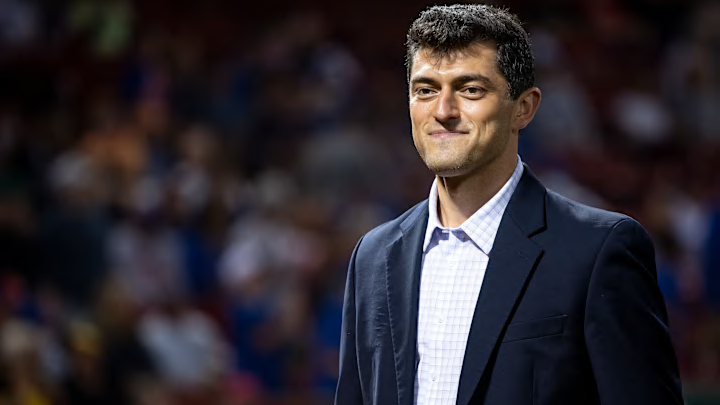Question #4: What will free agency look like for the Cardinals?
This is probably a question best posed to ownership rather than Chaim Bloom, but it still applies.
Last year, the Cardinals signed just one major-league free agent: reliever Phil Maton. Maton agreed to a one-year deal worth $2 million, and he repaid the Cardinals handsomely. He posted a 2.35 ERA, and he settled in quite nicely to the setup role for the Cardinals. He was traded at the deadline for prospect depth in RHP Skylar Hales and LHP Mason Molina and some international bonus pool money.
The Cardinals didn't sign Maton until March. Could this winter be a repeat of last year's?
The DeWitt family was adamant last year that payroll would be cut, and they will echo the same sentiment this year. No longer will the ownership group approve spending on pricey free agents to fill holes in the team that could otherwise be filled internally (and more cheaply).
However, Chaim Bloom could still be granted some financial flexibility, particularly if he can move the onerous contracts of Nolan Arenado, Willson Contreras, and Sonny Gray this winter. Fans shouldn't expect a blockbuster free agent like Kyle Tucker, Kyle Schwarber, or Framber Valdez. Instead, any signings will mirror the signing of Phil Maton last year.
The Cardinals should look to sign veteran players to cheap contracts who could then be flipped at the deadline once again for prospect depth if the club is out of contention. These veterans would be complementary players who could fill holes for the club without taking away playing time from young players next year.
A reliever or two, a first baseman (especially if Contreras is traded), and a fourth outfielder, preferably a right-handed center fielder (hello, Harrison Bader?), would fit the bill. Signing these players to reasonable contracts with the expectation that they won't see 400+ at-bats would be ideal for the organization. They won't break the bank, they'll provide valuable experience for a young team, and they'll help supplement the roster.
Chaim Bloom likely won't have much wiggle room in free agency this winter. What he does with the finances he's given will be vital for the success of the team next year.
